
by Becky Andrus | Aug 3, 2022 | Regional News

Gov. Whitmer Announces Michigan Reconnect Milestone:
Over 100,000 Applicants Accepted into Program
Bipartisan effort is putting more working-age adults on tuition-free path to high-demand, high-wage careers
LANSING, Mich. – Today, Governor Gretchen Whitmer announced that as of late July, more than 100,000 Michiganders are on their way to a tuition-free degree or skills certificate through the Michigan Reconnect program.
This news marks a major milestone in the state’s efforts to achieve the governor’s Sixty by 30 goal, which aims to increase the number of adults in the state with a postsecondary degree or credential to 60% by 2030. Since the announcement of the Sixty by 30 goal, the percentage of working-age adults with a college degree or certificate has increased from 45% to 49%.
“Michigan Reconnect is putting hardworking Michiganders on a tuition-free path to a brighter future,” said Governor Whitmer. “This bipartisan program is a game-changer not only for the people enrolled in the program, but also for their families, small businesses, and the state of Michigan. I am so proud of all 100,000 and counting Reconnect applicants. They have taken an important step to chase their dreams, learn new skills, and land a good-paying job to support themselves and their families. Because of their grit and determination, we can keep growing Michigan’s economy, supporting and attracting hardworking people, and powering small businesses in every region of our great state.”
Created with overwhelming bipartisan support, the program is the largest effort in state history to ensure that Michiganders who are 25 or older and do not have a college degree have an opportunity to earn an associate degree or certificate with free or deeply discounted tuition. Since its launch in February 2021, approximately 18,000 participants have returned to school to finish their degree or enrolled for the first time. Over 500 have already graduated with an associate degree or skills certificate.
“More Michiganders are within reach of a college degree or skills certificate thanks to efforts like Michigan Reconnect,” Michigan Department of Labor and Economic Opportunity Director Susan Corbin said. “We are creating new opportunities for our workers to land high-paying jobs in fulfilling careers and for our Michigan businesses to fill critical talent needs so they can continue to compete, grow and innovate.”
Paving Pathways for Opportunity
After facing significant challenges throughout her life, including time in the foster care system and living on her own while trying to graduate from high school, Shelby Essenmacher always thought that obtaining a college education and a fulfilling career with a good paycheck were out of her reach.
That is, until the native Detroiter applied for the Michigan Reconnect scholarship program.
Essenmacher, 31, is taking advantage of the program to pursue an Associate of Applied Science in Nursing degree at Wayne County Community College District.
“This has been a life changer,” Essenmacher said. “I can now go after my dream of becoming a nurse without worrying about the cost of tuition, which has always been a major barrier preventing me from going back to school. Reconnect has cleared a pathway for me to achieve my education and career goals.”
Governor Whitmer and her administration have worked with the Legislature to assemble a network of people and resources to provide Reconnect students the critical support they need to successfully enroll in classes and complete their degree or certificate program.
Last month, the governor announced a $6 million bipartisan investment to help enrollees overcome other major barriers, including the cost of books, child care, food, internet access and transportation.
Grants will be available through Michigan community colleges, including its three tribal colleges, for Reconnect and Futures for Frontliners students, allowing up to $550 per academic year to be distributed directly to eligible students who have completed at least one semester with either scholarship program.
Michigan Reconnect Navigators are another available resource to help students succeed with the steps leading up to enrollment. Navigators are available to help applicants complete admissions and financial aid requirements, set career goals, identify educational opportunities and create a plan to graduate. Navigators also connect students to additional programs and assistance offered by their community college and local partners to remove barriers to education.
“Making the decision to go back to school, especially when you are already balancing adult responsibilities like a job or a family, is empowering and inspiring—and it can be daunting,” said Sarah Szurpicki, LEO’s Office of Sixty by 30 director. “That’s why we want everyone considering the Michigan Reconnect scholarship program to know there is support along the way, and the Navigators can help them find solutions to anything that would stop or slow them down.”
Michigan Reconnect pays the cost of in-district tuition for eligible adults who want to pursue an associate degree or skills certificate at any of Michigan’s public community colleges, including its three tribal colleges. Eligible residents can attend community college tuition-free at a community college where they are considered in-district. For those who are not considered in-district by a community college, Michigan Reconnect will still cover up to the in-district portion of tuition.
To be eligible for Michigan Reconnect, a person must:
- Be at least 25 years old when you apply
- Have lived in Michigan for a year or more
- Have a high school diploma or equivalent
- Have not yet completed a college degree (associate or bachelor’s)
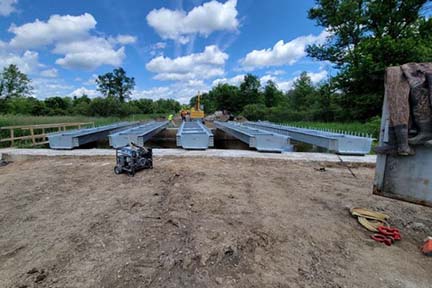
by Becky Andrus | Aug 1, 2022 | Transportation
FOR IMMEDIATE RELEASE MEDIA CONTACT
August 1, 2022 Dan Weingarten
906-250-4809
[email protected]
One bridge bundling project wraps up, others starting
Fast facts:
– The Michigan Department of Transportation (MDOT) bridge bundling pilot project is moving forward, with a Livingston County bridge completion last week and the final five projects starting this month.
– The pilot currently encompasses major improvements to 19 locally owned bridges in 2022.
– MDOT expects the bridge bundling pilot project, which covers several projects under one contract, to streamline coordination and permitting, increase economies of scale, and improve bridge conditions on local routes.
– MDOT’s online dashboard at Michigan.gov/BridgeBundling allows the public to track progress on the projects.
LANSING, Mich. – This month is a busy one for the Michigan Department of Transportation (MDOT) bridge bundling pilot project, with repairs on the final five bridges included in the program scheduled to begin.
Seven local agency bridge bundling projects are now largely finished, with work on seven others nearing completion. Two more projects are starting today, with the final three set to begin later this month.
The Mason Road bridge over the south branch of the Shiawassee River in Livingston County was the most recent bridge to be repaired. While bridge work finished on Thursday, the road will not reopen to traffic immediately. MDOT and Livingston County have collaborated, allowing the county road commission to take advantage of the bridge closure to start a road project. The road and bridge will remain closed until around Oct. 1, when the county’s project is completed. Delaying the reopening, at the county’s request, will reduce inconvenience for stakeholders by condensing two potential closures into one tighter timeframe.
Steve Wasylk, managing director of the Livingston County Road Commission, said Mason Road is a vital connector for numerous areas in the county. It also serves as an alternate route if I-96 is closed for any reason, making the condition of the bridge very important.
“Prior to construction, we had reduced loading on the bridge and numerous holes in the deck,” Wasylk said. “Having this bridge included in the Bridge Bundling Pilot was a tremendous benefit to be able fix the bridge with no impacts to our budget.”
Livingston County has another bridge in the program, on Iosco Road, scheduled to be repaired starting Aug. 15. While not as highly traveled as Mason Road, Wasylk said it’s another important connection.
All of the bridges encompassed by the bridge bundling program will be completed and reopened to traffic within 60 or 90 days from the start of repairs, with the exception of Mason Road. The remaining bridges, along with scheduled start dates and contracted length of the project, are:
Lenawee County: Sand Creek Highway (Aug. 1, 90 days)
Livingston County: Iosco Road (Aug. 15, 60 days)
Luce County: Dollarville Road (Aug. 1, 60 days)
Macomb County: 26 Mile Road (August 15, 90 days)
St. Joseph County: Nottawa Road (Aug. 29, 90 days)
This year’s bridge bundling pilot project, the first of its kind in Michigan, is repairing 19 bridges in serious or critical condition that are owned by local agencies. Each bridge will have its superstructure replaced, which includes full removal and replacement of the bridge deck and supporting beams.
Adam Newton, project engineer for the Macomb County Department of Roads (MCDR), said “the bridge bundling program was a great resource for the department as it strives for a sustainable balance of bridge replacement, improvements and preventive maintenance to limit the number of bridges that slip into poor, serious or critical condition.”
“Having a few of the bridge superstructures that are in critical condition replaced within the bridge bundle pilot project has given the MCDR an opportunity to focus on implementing a mix of fixes for the remainder of our bridge inventory with traditional resources and funding,” Newton said.
Macomb County has three bridges, including 26 Mile Road, with repairs starting Aug. 15, in the pilot program.
The pilot project is funded by federal Highway Improvement Program (HIP) dollars. MDOT bridge staff and consultants are doing preliminary design and construction administration work for the bridge bundling program.
An online dashboard at Michigan.gov/BridgeBundling provides project updates and shows percent completion, detour routes, and other information for each project.
The pilot program is only the first phase of the bridge bundling initiative with $196 million in federal COVID relief funds appropriated by Gov. Gretchen Whitmer and the Legislature will allow the state to execute Phase II of the bridge bundling program, beginning later this year, to address 59 more bridges.
A list of the Phase II bridges, which were prioritized based on regional mobility and safety, is available here. Phase II focuses on closed and load-posted bridges. Some will be permanently removed while others will be fully replaced.
MDOT expects bridge bundling, which covers several bridge locations under one contract, to streamline coordination and permitting, increase economies of scale, and improve bridge conditions on local routes around the state. MDOT is working to expand the approach, already in use on state trunkline projects, to address locally owned bridges.
###
Driving safely in work zones saves lives! Protect MI work zones by taking the pledge.
www.twitter.com/MichiganDOT | www.facebook.com/MichiganDOT | www.youtube.com/MichiganDOT
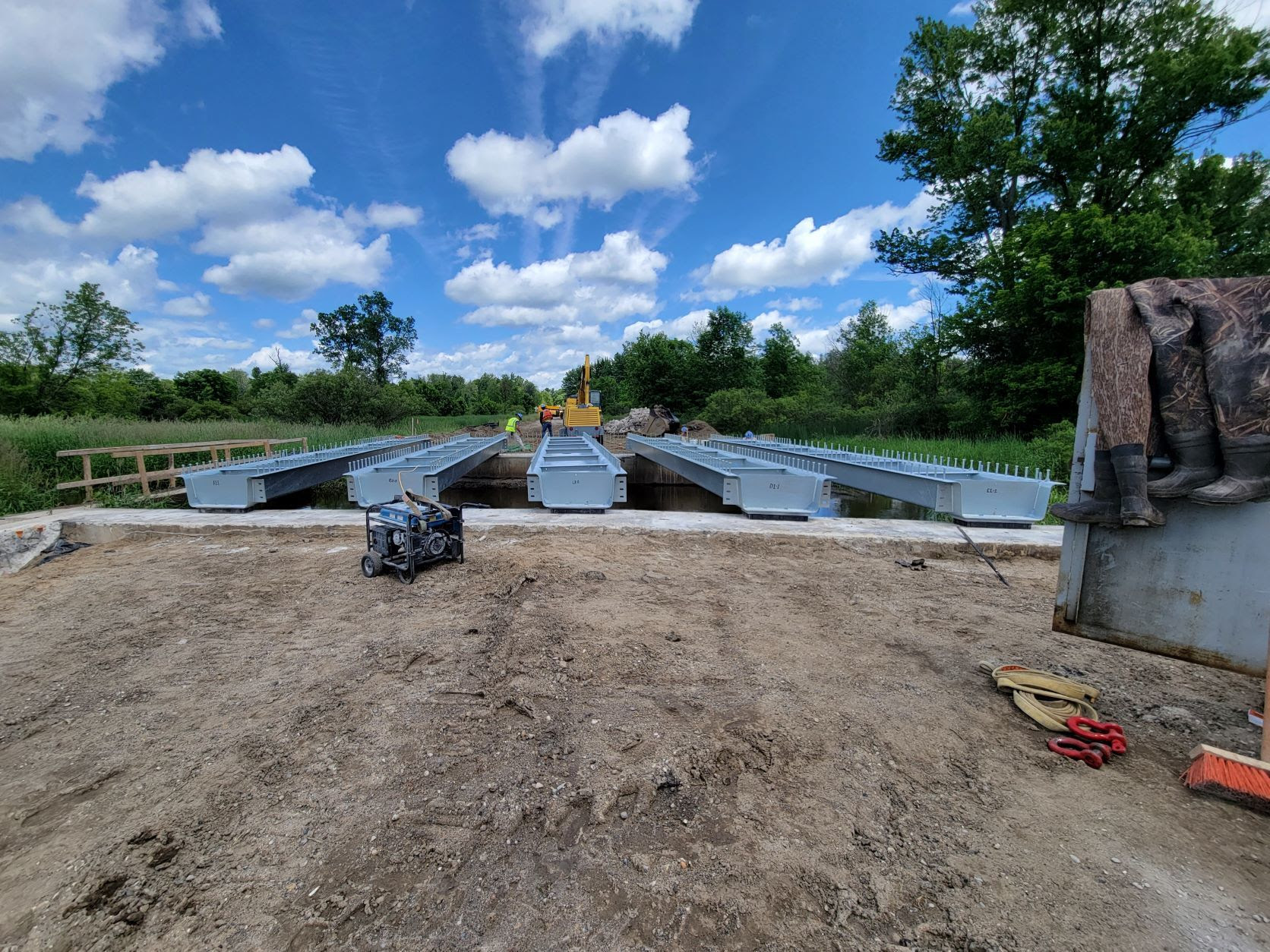
The Mason Road bridge over the south branch of the Shiawassee River in Livingston County is shown under construction earlier this summer. The bridge, one of 19 to be repaired under the Michigan Department of Transportation (MDOT) bridge bundling pilot project, was completed last week. (Photo courtesy of RS&H)
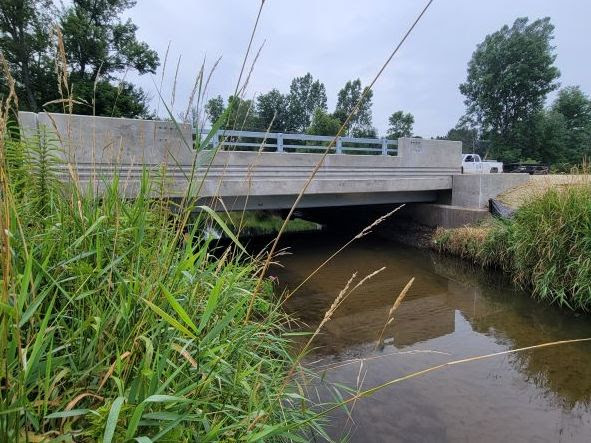
The Mason Road bridge over the south branch of the Shiawassee River in Livingston County, one of 19 to be repaired under the Michigan Department of Transportation (MDOT) bridge bundling pilot project, was completed last week. The bridge will remain closed to traffic until October, at the county’s request, while a county road project is under way. (Photo courtesy of RS&H)



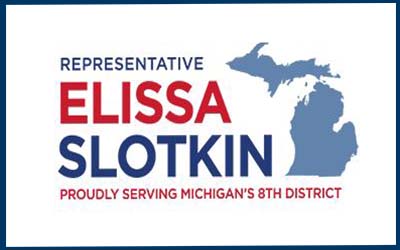
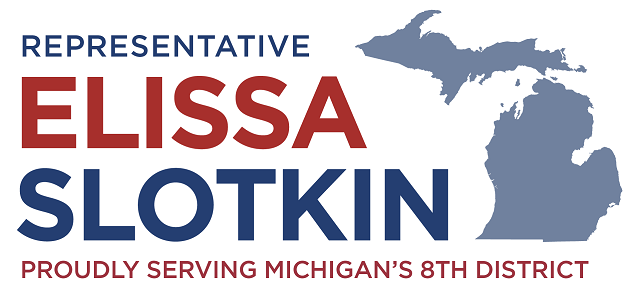





 Find your favorite people and come explore the great outdoors, learn new skills and make memories that will last a lifetime with Lodge and Learn at the
Find your favorite people and come explore the great outdoors, learn new skills and make memories that will last a lifetime with Lodge and Learn at the  As you travel around the state this summer, don’t miss out on experiencing our state’s past at the Michigan History Center’s
As you travel around the state this summer, don’t miss out on experiencing our state’s past at the Michigan History Center’s  Looking for something fun for the family to do – or a chance to learn more about Michigan’s outdoors – in Detroit? Check out some of these upcoming events at the DNR
Looking for something fun for the family to do – or a chance to learn more about Michigan’s outdoors – in Detroit? Check out some of these upcoming events at the DNR 


